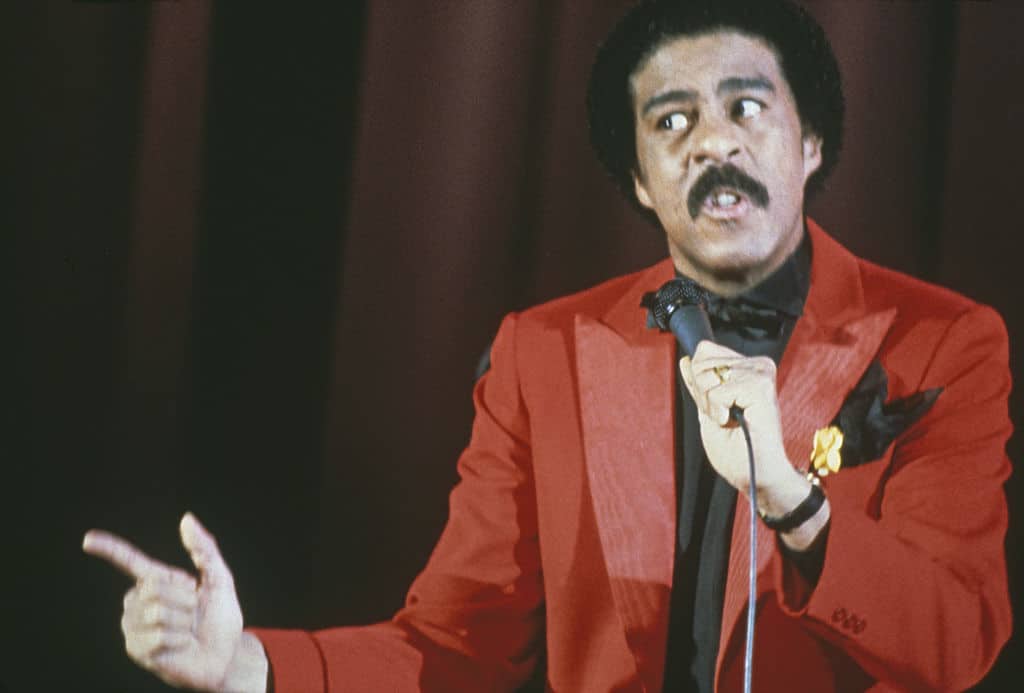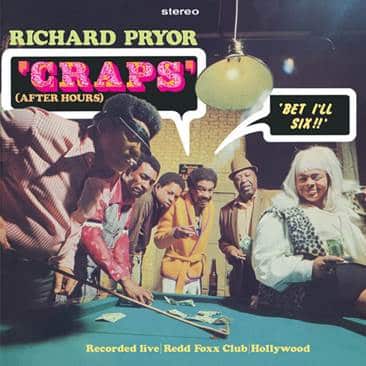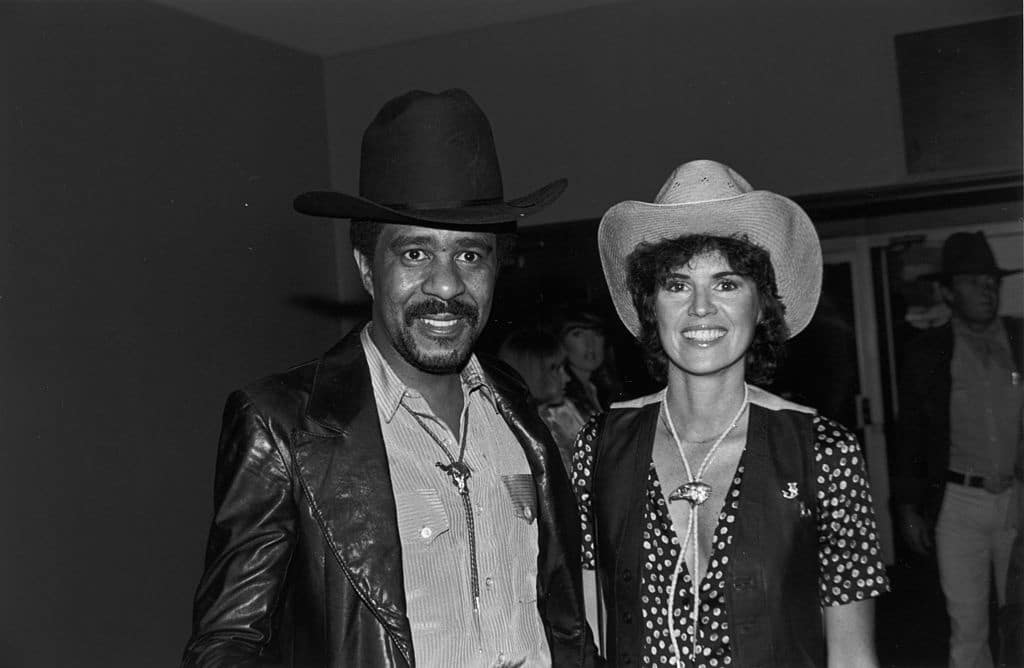
*Richard Pryor fans are in for a treat as three of his albums — “Live At The Comedy Store, 1973,” is now available on vinyl, and his first two LPs, “Richard Pryor” and “ ‘Craps’ (After Hours)” have been newly remastered on vinyl with bonus material.
According to a press release, all three re-releases were co-produced by Pryor’s widow Jennifer Lee Pryor, with the backing from STAND UP! RECORDS, Omnivore Records, and Richard Pryor’s production company Indigo. The albums are available at all major retailers or online here.
We caught up with Jennifer to discuss the pioneering writer-actor-comedian and what she hopes veteran comics take away from this material in this age of cancel culture.
*“I think the bonus material is unbelievable,” she stated in our exclusive interview. “I think the quality is amazing and fresh, they’re beautiful, the way that they have produced them, manufactured them is gorgeous.”

She added … “we need to introduce everyone, including the old fans, reintroduce them to Pryor.”
“His relevancy is still so stark and amazing,” Pryor continued. “Although never leaving, Pryor is today, still the king. And for a reason. Listen up and you’ll hear why and how.”
Pryor said the cover art for the five-time Grammy Award winner’s first album (“Richard Pryor”) serves as a “huge statement about his work.”
“He basically looks as if he’s in 2001, The Space Odyssey. He’s got bow and arrows, a ring through his nose. He is basically coming out making a huge statement about his work and that was the very first album. And I just love it. I not only love the visual of it, but his comedy surpasses a lot of what’s out there today,” she explained.

What can you tell us about Richard’s emotional and spiritual journey at the time he recorded this material?
JP: He had a lot of emotional turmoil. He was finding his voice. He was doing jokes for the white audiences and he just one day realized, “I can’t do this anymore.”
He looked in the audience actually, and he saw Dean Martin’s face and Dean was looking at him like, “Dude, who are you? What are you doing?” And Richard, somehow that reflected back to Richard and he had this epiphany and he walked off stage and he went to Berkeley and he basically, woodshedded, he just studied. He hung out with playwrights. He hung out with the Black Panthers. He hung out with geniuses. He hung out with, at the time, all the people who were really at the turning point of their generation, who were really going to try to make a change in this country for African Americans. And he rode that wave.
He basically was in a lab of his own making at Berkeley and he came out of that with his voice. He became Richard Pryor… the one we know, not the slapstick guy, who was already a success. If you see him on Merv Griffin and those shows, he is doing things like Rumpelstiltskin and he’s clever and he’s creative, and he is funny. But it wasn’t the Pryor who we come to know and love, right?
So when he burst on the scene and did Pryor, he was ready and he was fed by all those tributaries, all those intellectuals who helped feed him and basically were his muse. He absolutely learned and gleaned from them what was important to say and what he wanted to say. His message, his need to speak to the truth. And he really found it and that’s where he was at the time. He was so prolific, you couldn’t stop him. And that cover (“Richard Pryor”) really speaks to … my God at that time doing that.
What is he saying with that photograph and statement? He’s saying a lot. And he was fearless. I would say at the time that he created and recorded these albums he was fearless. He didn’t give a damn.

Do you think he would be successful in today’s cancel culture war?
JP: I’m asked this a lot by the way. What would he be doing? How would he stack up in this climate, in this racist climate, if you will, in this cancel culture climate, in this woke climate? He would still be Pryor. That is what’s so fantastic. Why was the need to put this (three albums) out there again? Why was it a need to refresh everybody’s mind or introduce him for the first time? Because of that relevancy. Because he still would be him. If he landed in this time, this day and age as a young Pryor in this day and age, would he do it? Oh hell yeah, he’d be doing it.
I mean he, he’d probably get threatened. He’d probably get beaten up, shot, whatever but you know what? He always was afraid of that anyway. Not afraid, but he always tempted that kind of reaction from the dark forces, from the racists in the country. He knew what he was up against and he never backed down. That’s why these albums are so fresh and so meaningful and carry such weight because he never backed down. Would it be more dangerous now? Was it dangerous back then?
People gravitated towards him. Rednecks would come up to him now and say, “You know what? I like you, man. I hear what you’re saying and I think you make a good point.” I mean, come on. He really spoke to everybody. And how did he speak to everybody? He spoke to everyone through his vulnerability. Through that truth, through that vulnerability – people related to that, even the rednecks. And when I say rednecks, I’m talking about racists. And yeah, even they heard him because he ripped the covers off white people and Black people. He talked truth to everybody. He said, “No, no, no, no, no, no. We’re human beings and that’s the condition we’re going to talk about here.” And of course, he nailed white America. As Dick Gregory said, “Richard Pryor performed brain surgery on America.”

Is it your hope that these albums inspire veteran and rising comics to be just as fearless as Richard Pryor?
JP: Absolutely. I do hope that they’re inspired, re-inspired, that they’re held up, and supported. Pryor was doing it at a time in this country that was pretty damn rough. Things were not smooth sailing at the time. And we were just coming out of the ’60s, which was obviously very volatile. We went through all those assassinations, my God. Comics have to remember that they’re the philosophers of the day. And they have to speak and reflect what’s happening. They have a duty and obligation to be brave and to go out there, balls to the wall. And if they don’t want to do that, if they’re thinking, “Oh, I want to be on a sitcom, damn it, I want to be on a show. I got to play nice. I got to…”
Look, Cosby, we call him the Oreo cookie, some of us do, right? Because he was clean. Cosby was clean on the outside, but he was dirty on the inside. It turned out, right? However, Richard didn’t give a damn. He just said, “Let me reflect what’s going on in the world right now.” And that hopefully is what real comics have to remember. They are the philosophers of the day. Let’s not be afraid and be whiny and be snowflakes, and let’s not be intimidated by all these Republicans, and anybody else who wants to shame you for telling the truth and speaking your truth. Don’t be shamed man. Find Richard Pryor. Find bravery and courage when you listen to Pryor. That’s what’s important here.
We Publish News 24/7. Don’t Miss A Story. Click HERE to SUBSCRIBE to Our Newsletter Now!





